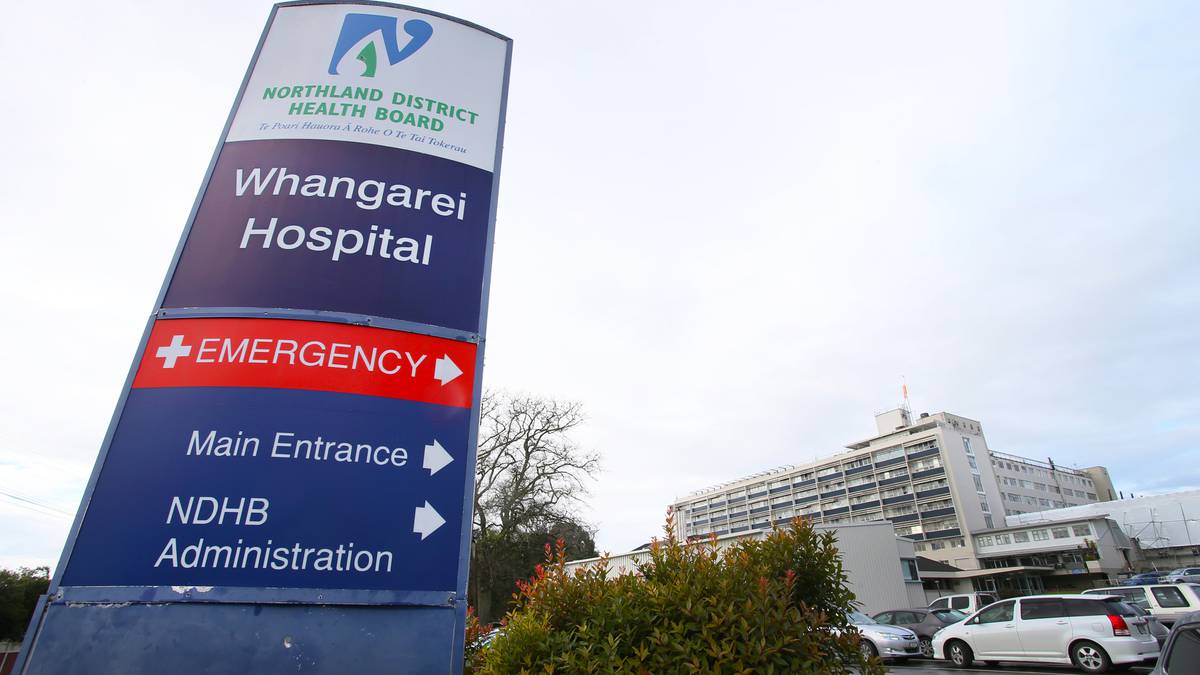Emergency department nurses issued a formal health and safety complaint to the hospital in September over staff shortages. Photo / Tania Whyte
Medical staff from across the country are likely to be sent to Whangārei Hospital over the coming months as recruitment to address staff shortage goes slower than expected.
Te Tai Tokerau Te Whatu Ora Interim
Lead Hospital and Specialist Services Tracey Schiebli says Te Whatu Ora is aware of the significant pressures on acute care.
Whangārei Hospital has one of eight emergency departments identified as a “hotspot” needing extra support before the winter flu season by Te Whatu Ora.
“Our best defence is to make sure our ‘variance response’ is working well. This means being able to deploy staff across our hospital services depending on the greatest area of need at the time,” Schiebli said.
The other emergency department “hotspots” are at Middlemore, Auckland City, Tauranga, Palmerston North, Wellington, Christchurch and Invercargill hospitals.
“Our Emergency Department is not the only area experiencing critical workforce shortages across our hospitals. We have established a Variance Response Team and aim to grow this team in coming months,” Schiebli said.
Schiebli recognised that Whangārei Hospital’s Emergency Department is old, which impacts staff as well as patient experience.
“We’re very much looking forward to the new Acute Services Block construction at Whangārei Hospital, following the recent announcement of funding to support this,” Schiebli said.
Advertisement
Te Whatu Ora said long wait times in EDs are “due to a range of factors such as staff sickness and workforce shortages”.
“We have been working hard on recruitment to address staff shortages, however, overall progress is slower than we would have liked as we grapple with continued attrition of senior experienced nursing staff, and gaps resulting from long-term leave,” Schiebli said.
Te Tai Tokerau Te Whatu Ora did not respond to the Advocate’s questions on how many staff were on long-term leave and how many had recently resigned.
“There are many reasons staff need to take leave including Covid stand-down time, sick leave, annual or bereavement leave,” Schiebli said.
/cloudfront-ap-southeast-2.images.arcpublishing.com/nzme/C3OX3Y5PWYOEDMJNVCPWKRZSQM.jpg)
In September 2022, Whangārei Hospital emergency department nurses were so worried about staffing levels they asked managers to call in army medics.
“Deployment of NZ Defence Force army medics to assist in our hospitals would not be a decision made locally and would have a high threshold from a national emergency response perspective,” Schiebli said.
National Party Health Spokesman Dr Shane Reti has previously claimed there has been a “marked decline” in the number of people seen within six hours at ED in Northland since 2017.
Reti also recently claimed, “the Government stopped proactively releasing the number of people who were given treatment within six hours of arriving at ED”.
Advertisement
In quarter one of September 2017, 91.4 per cent of patients were seen within six hours. In October 2022 (non-quarterly data), only 76.5 per cent were seen within six hours.
However, Minister of Health Ayesha Verrall said Te Whatu Ora data shows that in the last two months of 2022, there has been a large improvement in these numbers.
In November 2022 99.4 per cent of Northland ED patients were seen within six hours, and 99.7 per cent in December 2022.
“The public can be assured that if they or their loved ones need urgent hospital-level care, they will receive it,” Schiebli said.
Schiebli said another priority is preventing winter illness through vaccination campaigns to keep New Zealanders well and out of hospital.
“As of 1 March, 2023, new vaccines are replacing original Pfizer Covid-19 vaccines for people currently eligible for boosters, and flu vaccines will be available on 1 April, 2023.
“We are also encouraging whānau to vaccinate their tamariki for pneumococcal disease, Meningococcal B, and flu alongside their three Covid-19 vaccines to provide the greatest level of protection in winter and reduce the impact of respiratory disease on primary care and hospitals.”
For health advice and support:
- Health Navigator A-Z is a New Zealand website with easy-to-read information on a wide range of health conditions.
- Freephone Healthline on 0800 611 116. The service is free of charge and interpreters are available.
- Emergency Q app (free download from Google Play or the Apple App Store) for advice about what and what is not a medical emergency, as well as directions to your nearest doctor.
- Phone your General Practice (GP) any time 24/7. After opening hours, your call will be directed to another healthcare provider.
- Video consult with a doctor, nurse or psychologist. There are a variety of options for you to consult with a doctor, nurse or psychologist through your phone or computer. If you register prior, the fee can be as low as $19 or free for under 14s. It’s like having a doctor or other healthcare professional on-hand wherever you happen to be – home, work, out and about, on holiday. For options, visit Virtual Consult Apps.
- Pharmacies provide free on-the-spot advice about medicines and general health concerns. Pharmacies can provide various health checks and tests, vaccinations, and treatments for non-urgent health issues.
- The ED offers White Cross urgent care clinic vouchers for patients who present with non-emergency conditions. The waiting times are usually much quicker at White Cross, especially if ED is busy with emergencies. However, primary care and urgent care services are also under pressure due to workforce shortages so at times this option is not available. There is no charge to the patient at White Cross when they present with a voucher.
People should always go to ED, or call 111, for genuine emergencies.




